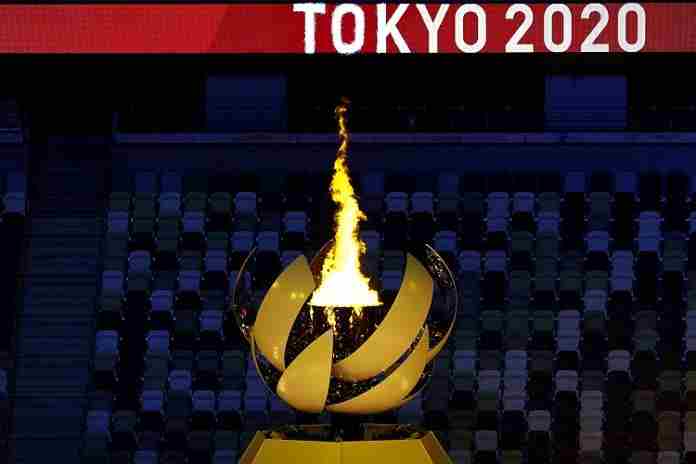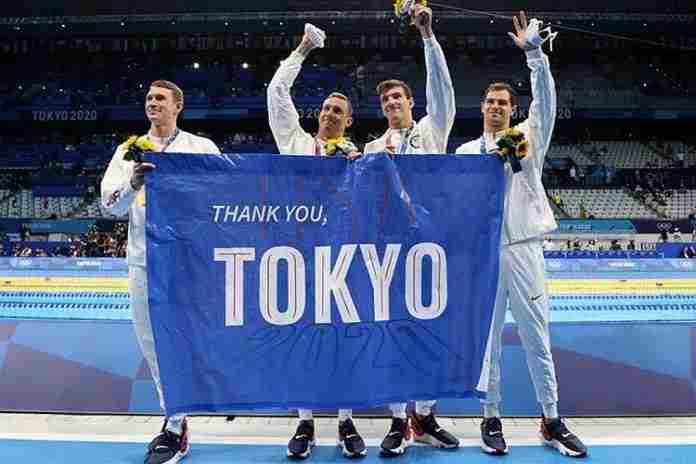(★ Friends: Thanks to the wonderful generosity of 53 donors, 94% of our current server & support bill has been covered. If you enjoy this coverage, please donate here. Your help is so very much appreciated. Thank you. ★)
Weightlifting was contested at the very first modern Olympic Games in 1896 and in every one from 1920 to 2021. Tokyo might have been the last.
A tsunami of doping, cover-ups, extortion, financial mismanagement, manipulations in governance and sloth caused the International Olympic Committee to pass an amendment to the Olympic Charter which could cause the International Weightlifting Federation to be suspended as early as 8 September and removed from the Paris 2024 program prior to the start of the Olympic Winter Games in Beijing next February.
That the IWF is being targeted is without doubt.
During the IOC’s two-hour business meeting held on Sunday, the members approved an amendment to the Olympic Charter which revises the procedure by which a federation or a sport can be disciplined. As described by IOC Legal Affairs Commission head John Coates (AUS):
“In the recent past, the IOC has been confronted with situations raising serious concerns regarding the governance of certain International Federations. The Executive Board will continue to carefully monitor these matters, however, it appears that the current wording of the Olympic Charter regarding the means to respond to these situations may be insufficient to address the risks these matters present to the IOC and the Olympic Movement. …
“The proposal would clarify that the IOC Session – I stress, the Session – may also remove any sport from the program of the Games if the relevant federation governing such sport does not comply with decisions or directions of the IOC Executive Board, of if the IF acts in a manner likely to tarnish the reputation of the Olympic Movement. …
Similarly, it is proposed to allow the Executive Board to suspend a sport or an event or a discipline – this is from the program – by expanding Rule 59.12. The possibility to announce the suspension will facilitate the resolution of non-compliance situations in a reactive manner.”
Federation Equestre Internationale (FEI) President Ingmar De Vos (BEL) asked – as an International Federation chief himself – about why this provision has been developed. Coates gave a clear answer about the inspiration for the proposal:
“The process would really be best described by giving the example in respect of one federation where over the last 2-3 years, the Executive Board has given four directions to that federation concerning doping and concerning improving their governance. Four very specific recommendations, which have not been followed.
“And so the Executive Board made those directions for good reason, made those directions to insure that the reputation of the Olympic Movement – our reputation – is not tarnished and … if federations are going to continue to disregard directions, then we believe there should be this power.”
The proposal, along with some others, was adopted without any dissenting votes.
For those asking when the next Executive Board meeting will be, it’s 8 September.
Alarm bells went off – again – within the weightlifting community within hours of the passage of the amendments.
USA Weightlifting chief executive Phil Andrews (GBR) sent out a statement insisting:
“We simply cannot waste a moment more – the old guard must depart if we are to have any chance of retaining the Olympic Programme status that means everything to our sport, our Member Federations, and, most importantly, our athletes.”
This was followed eight hours later by a joint statement of USA Weightlifting, the Royal Belgian Weightlifting Federation, German Weightlifting, Weightlifting Fiji, Weightlifting New Zealand, Marshall Islands Weightlifting, the Hellenic Weightlifting Federation, Samoa Weightlifting and Sarah Davies (GBR), the head of the IWF’s Athletes Commission, which included:
“The simple reality is that we have one month to save this original beloved Olympic sport, and we call upon the sports’ leadership to at this time put the sport above themselves. You simply must.
“Following these amendments, it is clear that the IWF and its’ member federations must take two actions:
● “The unqualified resignation, and of any individual identified by the IOC, or mentioned in any [International Testing Agency, World Anti-Doping Agency] or McLaren report together with leadership.
“Further we call upon the entire IWF Executive Board, including Continental Presidents, as well as Commissions and Committees to resign immediately.
“We propose independent leadership be put in place as an interim measure pending the election of new leadership.
● “The passing of a new constitution with uncompromising eligibility criteria that ensure new leadership focused on good governance, athlete rights and a fair field of play as advised by independent experts.
● “The implementation of all IOC requests detailed in various letters from the IOC.
● “The unqualified resignation from Member Federation leadership positions of individuals identified by the IOC, or mentioned in any ITA, WADA or McLaren report.
“While it might feel unfair that the sport cannot decide its’ own fate by way of a negotiated solution between disagreeable parties or via a regular process, the reality is that these are the only actions that will at this stage allow us any possibility of being present on the Paris 2024 program.”
During his 6 August news conference in Tokyo, IOC President Thomas Bach (GER) was asked specifically about the IWF. His blunt reply was:
“We still need to see a culture change in this international federation. If you look at the last Congress which has taken place and the vote results there, this does not necessarily speak of a culture change and of real awareness of the need to dramatically improve the governance of this federation.”
And it does not stop there. The IOC Session passed another Charter amendment, reserving to the IOC the sole authority to decide who can receive accreditation at the Olympic Games. The reason was a successful appeal by Russian Weightlifting Federation President Maxim Agapitov, a former World Champion at 91 kg, who was denied accreditation to the Games by the IOC due to a doping suspension from 1994. He asked the Court of Arbitration for Sport to confirm his accreditation due to his position as a member of the IWF Executive Board, and the Court agreed.
In addition, the IWF failed to pass a new constitution on 30 June, although amendments requested by the ITA and WADA were approved for inclusion. Another meeting was supposed to be held prior to the Tokyo Games, but is now scheduled for an in-person Congress on 29-30 August in Doha, Qatar.
Last chance. The IOC’s position is essentially that anyone who has been part of the IWF leadership during any of the past decades of negligence, malfeasance and possible criminal activity has to go. Now. And not come back.
If the IWF does not want to comply, the sport does not have to be part of the Olympic Games. With just a few exceptions, the Games make its sports important, not the other way around. And if weightlifting is thrown off the bus for 2024, there are sports lined up to take their 120 quota sports for Paris (already down from 196 in Tokyo).
Weightlifting is not the only one under scrutiny. The International Boxing Federation (AIBA) is still on suspension and the boxing events in Tokyo were run under the supervision of the IOC’s Boxing Task Force. In contrast to the widespread screams of protest heard at the Rio Games about judging, the competition proceeded fairly – although not completely – calmly in Tokyo. The question of what to do about AIBA and boxing in the Games will shortly be reviewed.
The IOC’s herculean effort to make the Tokyo Games a reality, in concert with the organizing committee and the Japanese governments, speaks well of its commitment to athletes and sport. It expects the same from the IWF, and if it does not receive it, will move on without weightlifting.
It has many other options. The IWF does not.
(Errata: Apologies for an error in yesterday’s post stating that Jessica Ramsey was the women’s Olympic shot put silver medalist; it was Raven Saunders, of course. This has been corrected on the site and will not happen again. Quoth the Raven, “Nevermore.”)
You can receive our exclusive TSX Report by e-mail by clicking here. You can also refer a friend by clicking here, and can donate here to keep this site going.
For our 649-event International Sports Calendar for 2021 and beyond, by date and by sport, click here!























